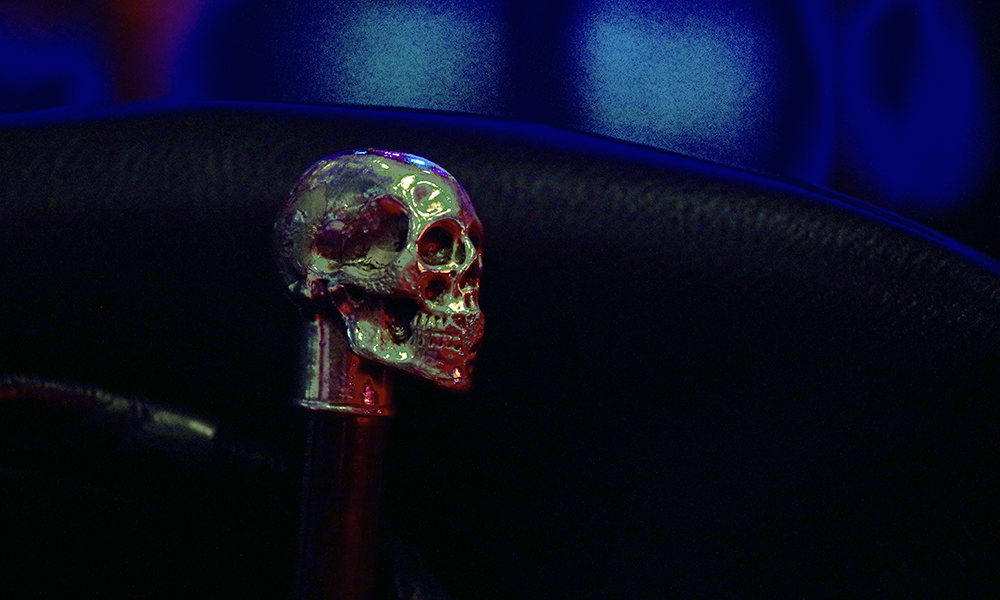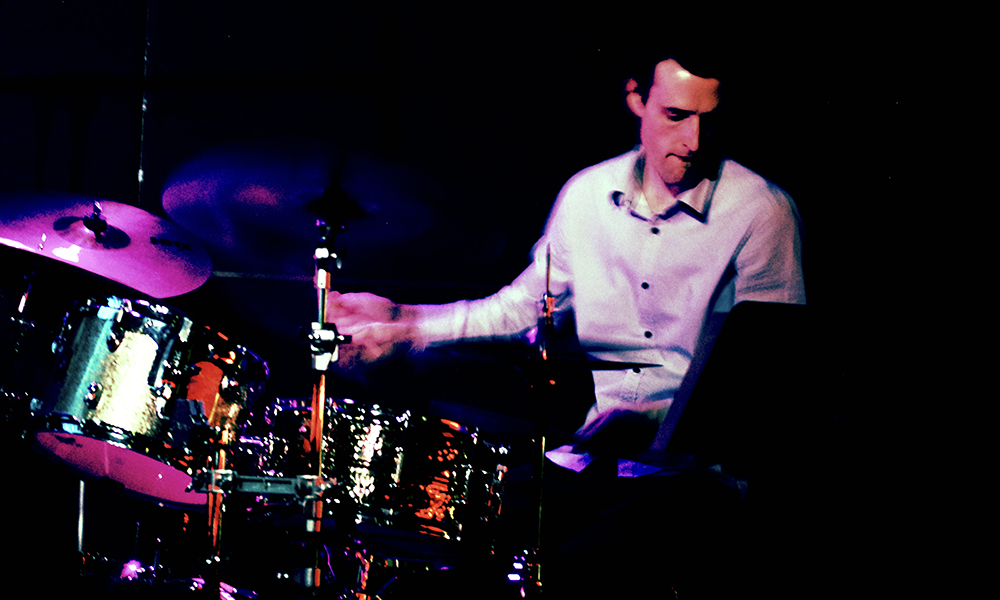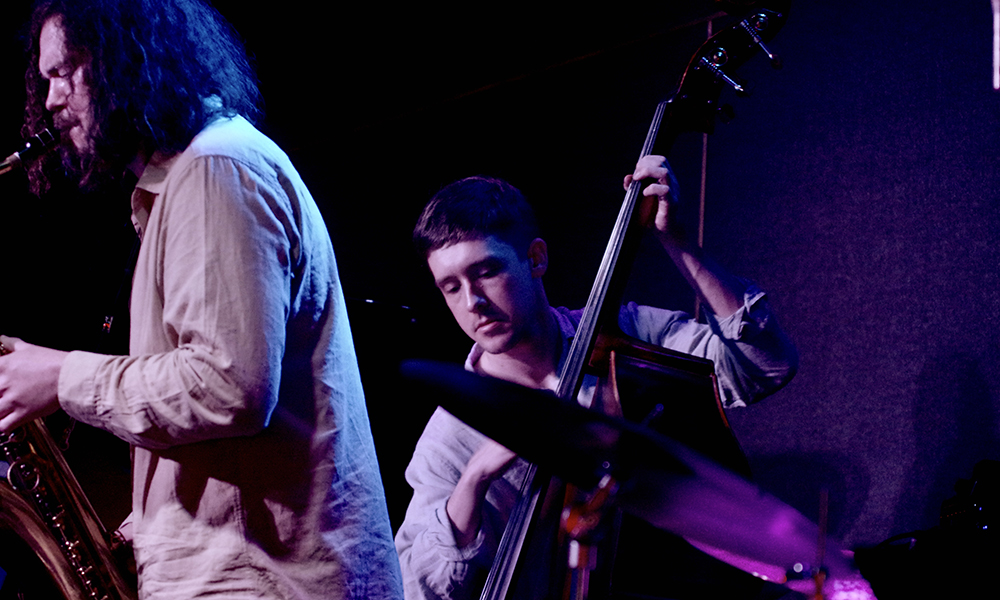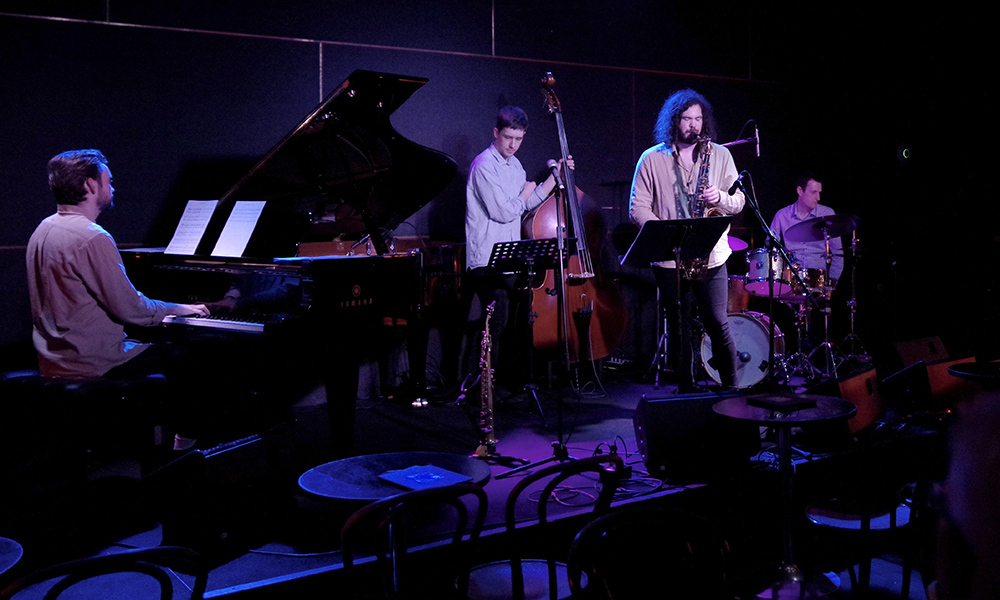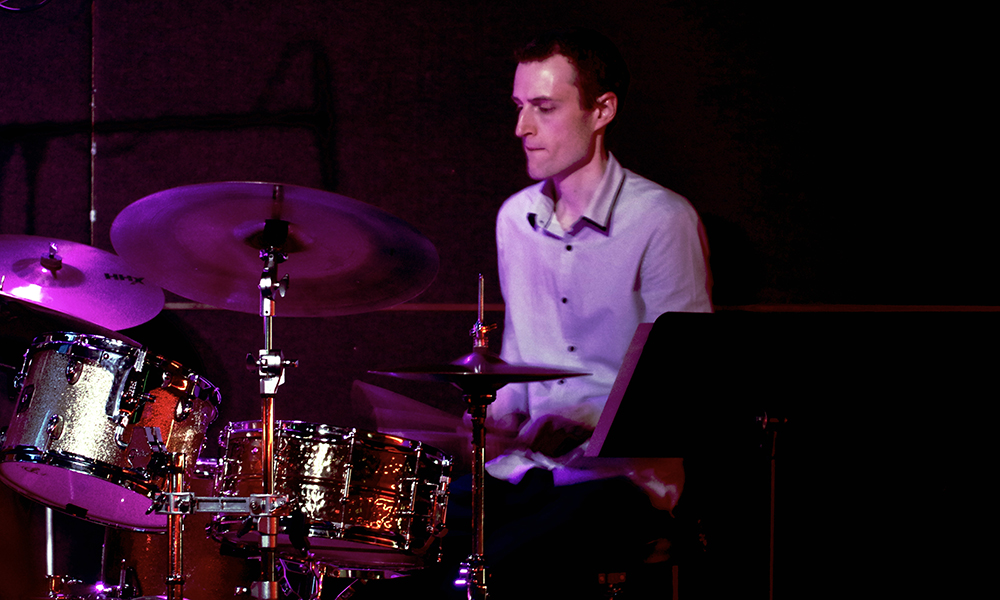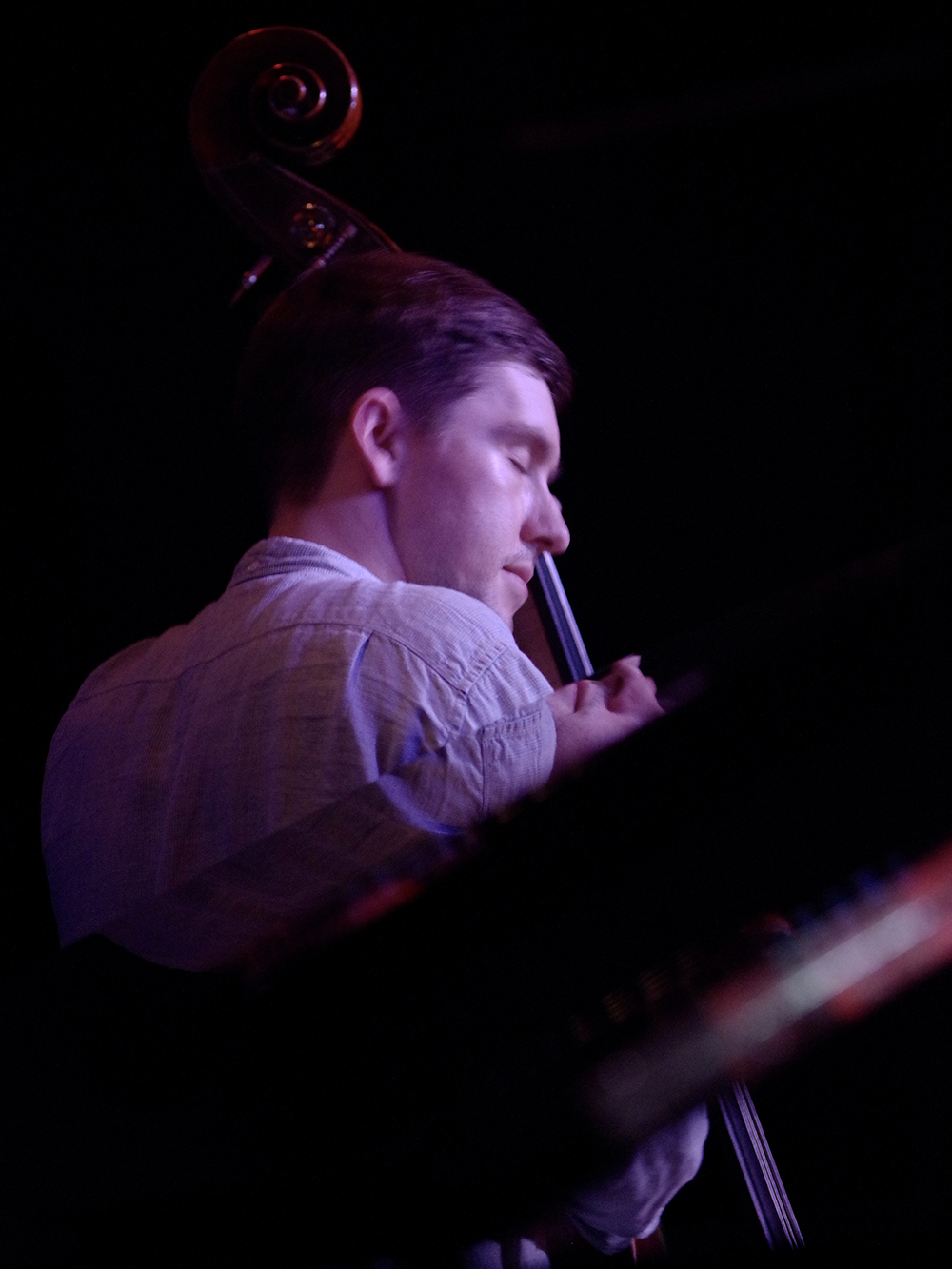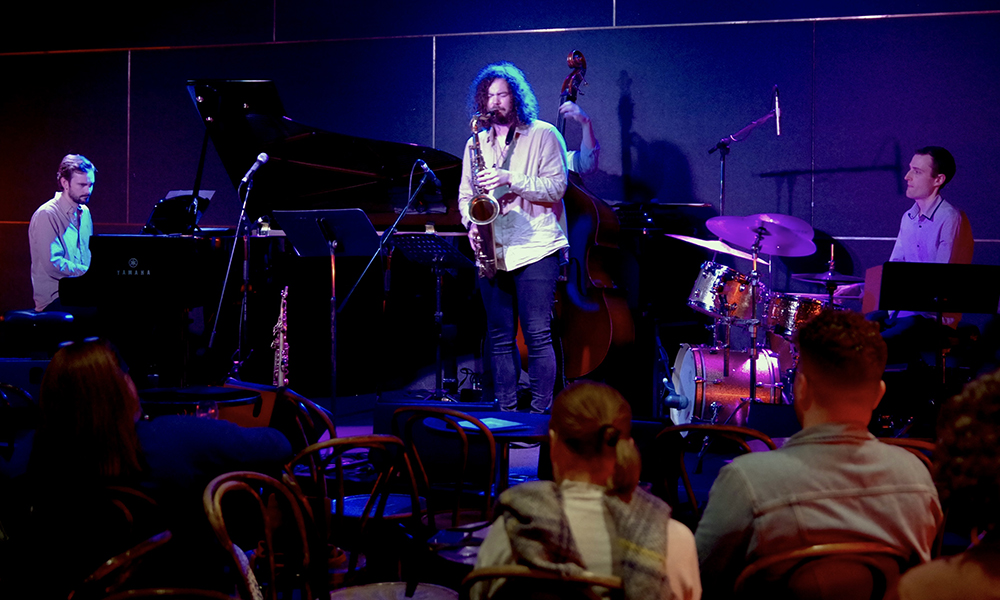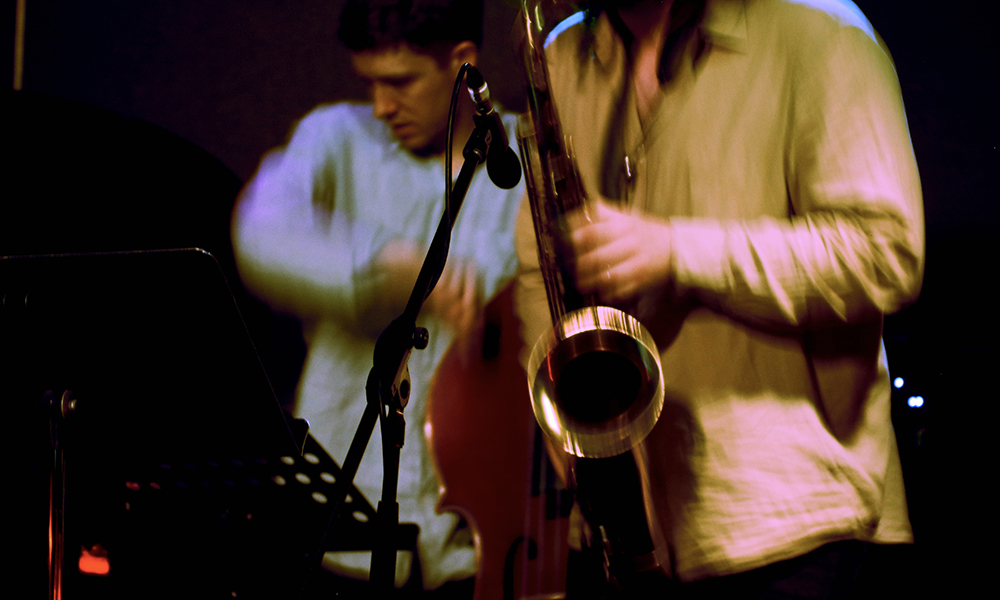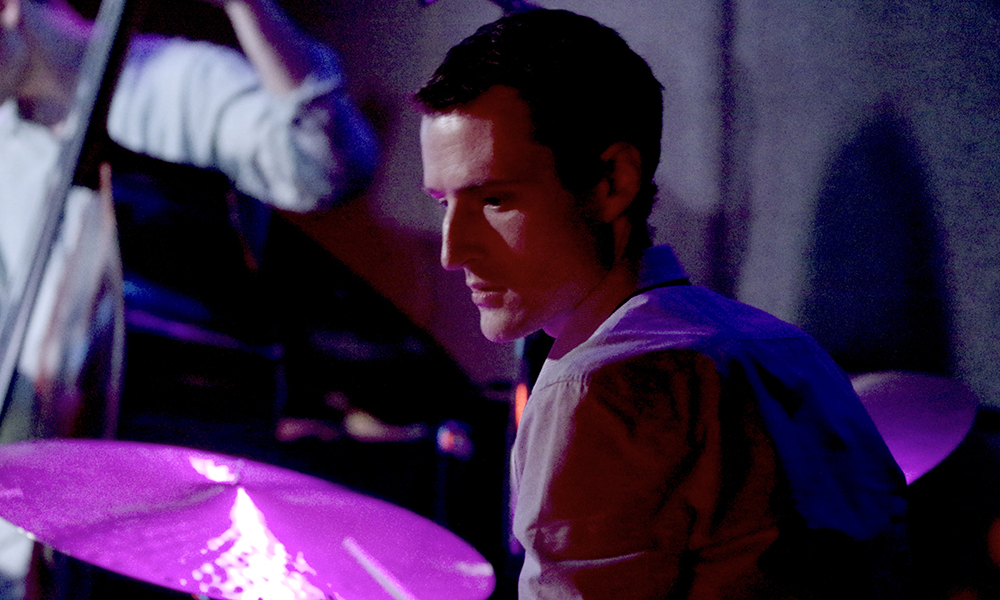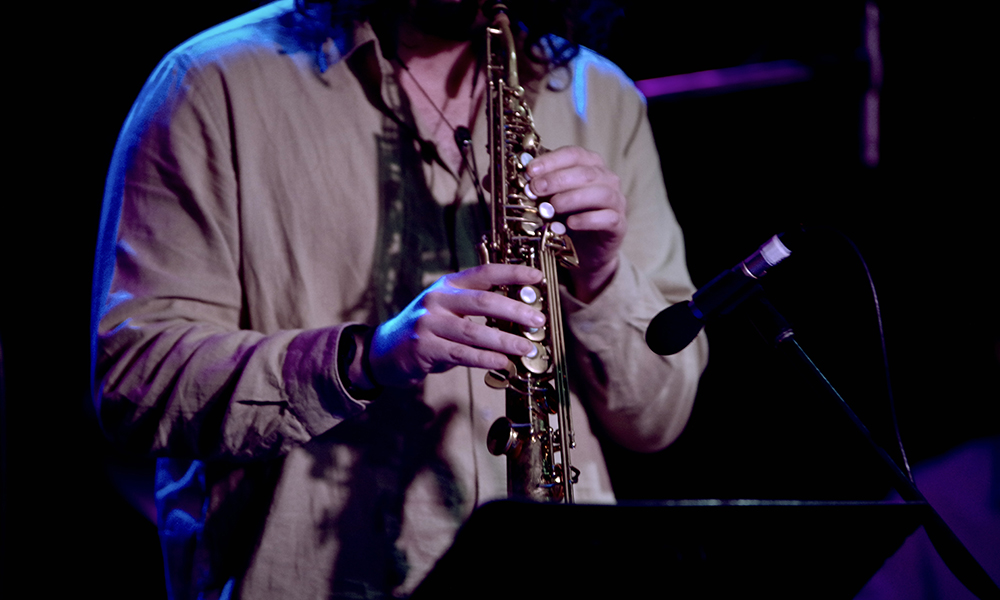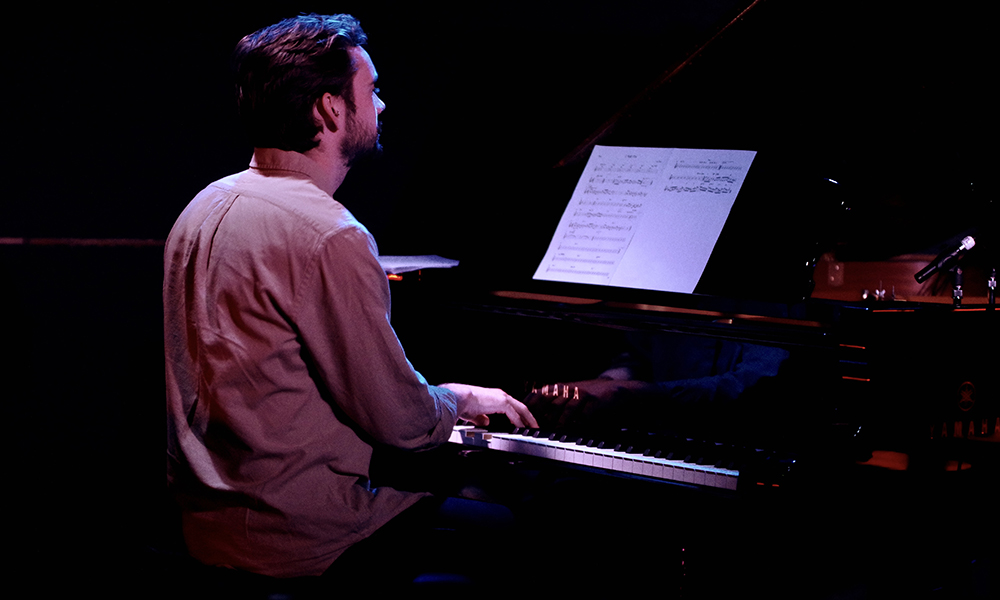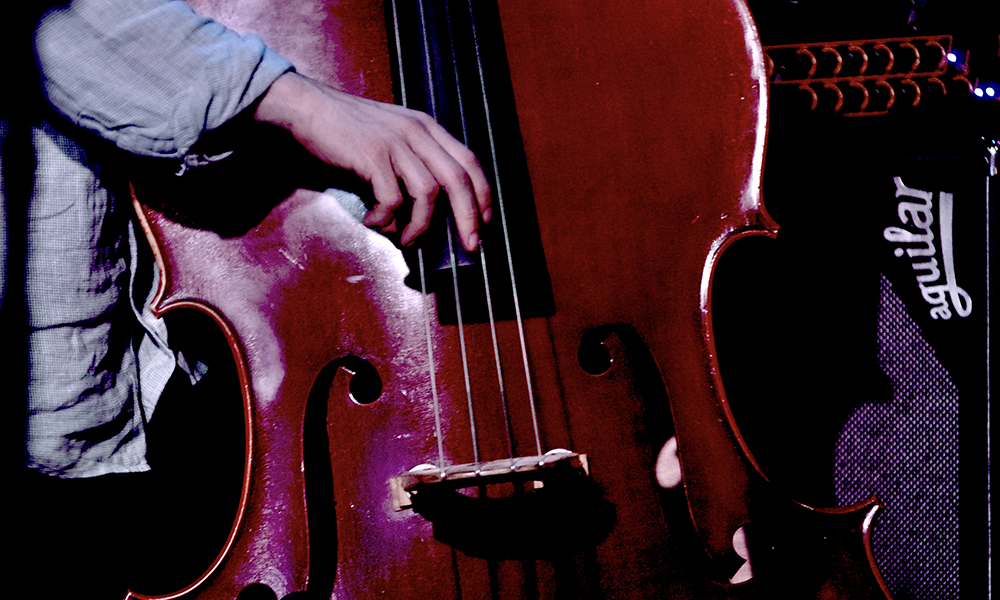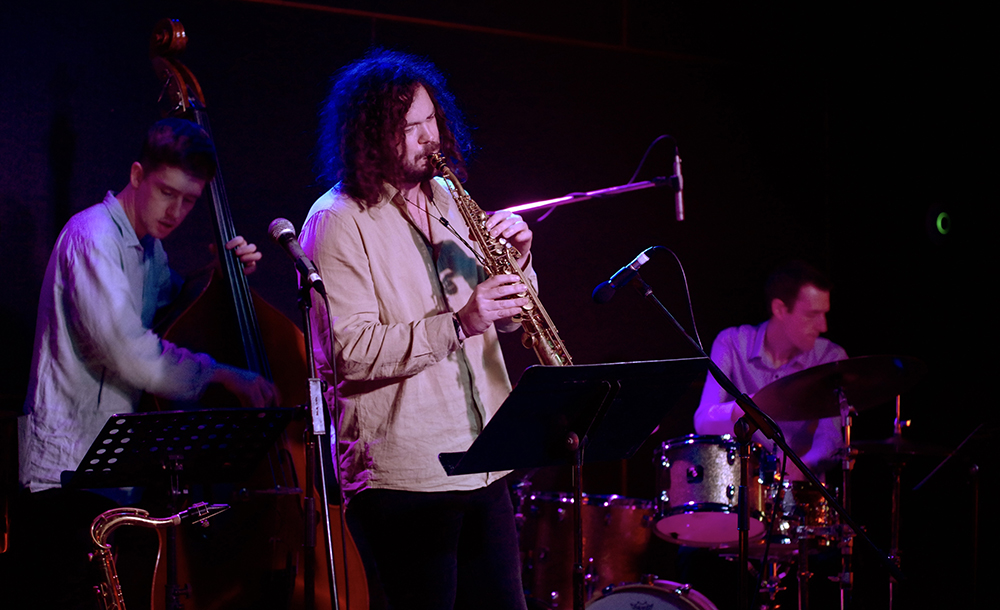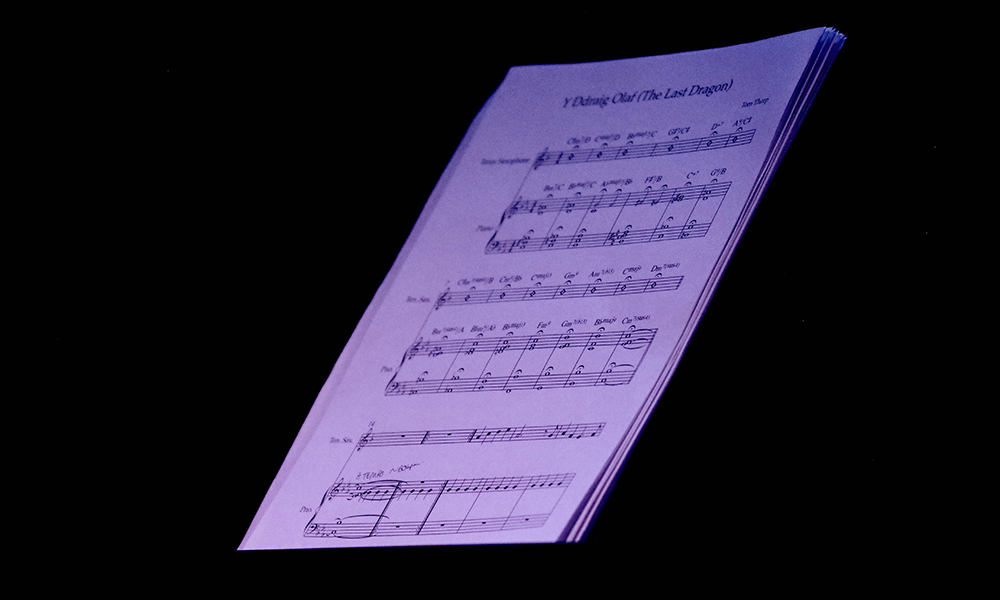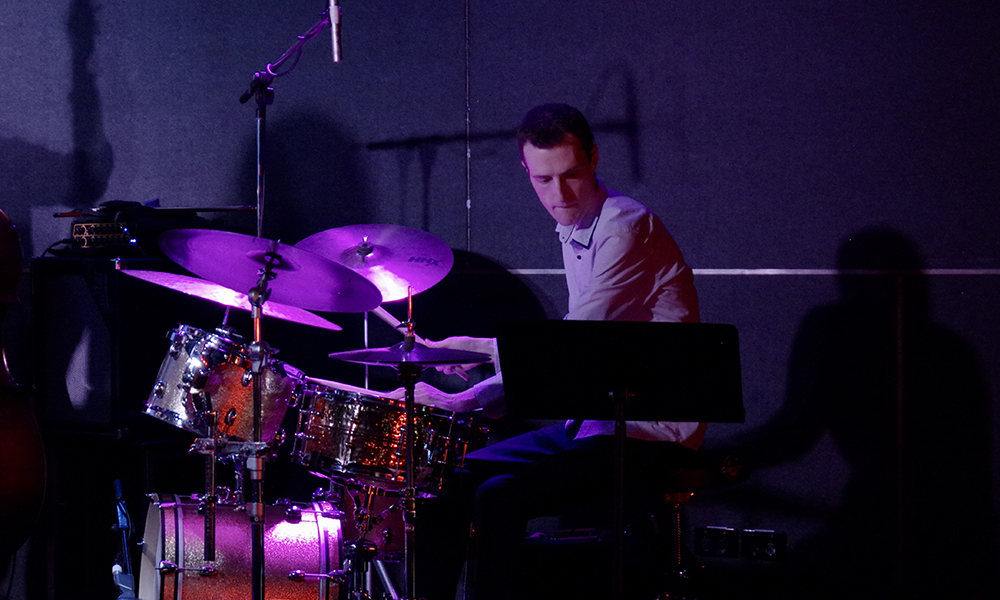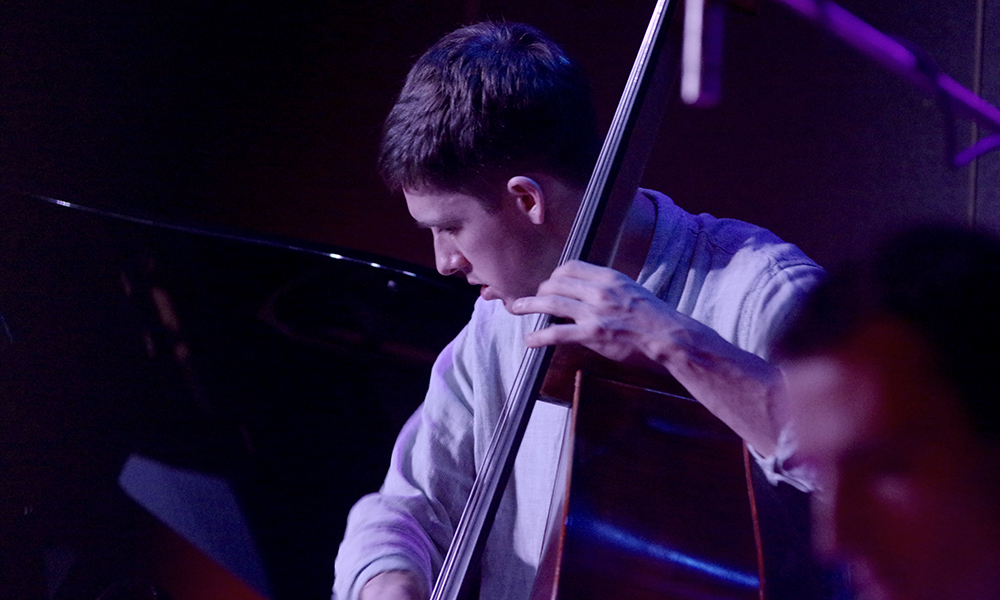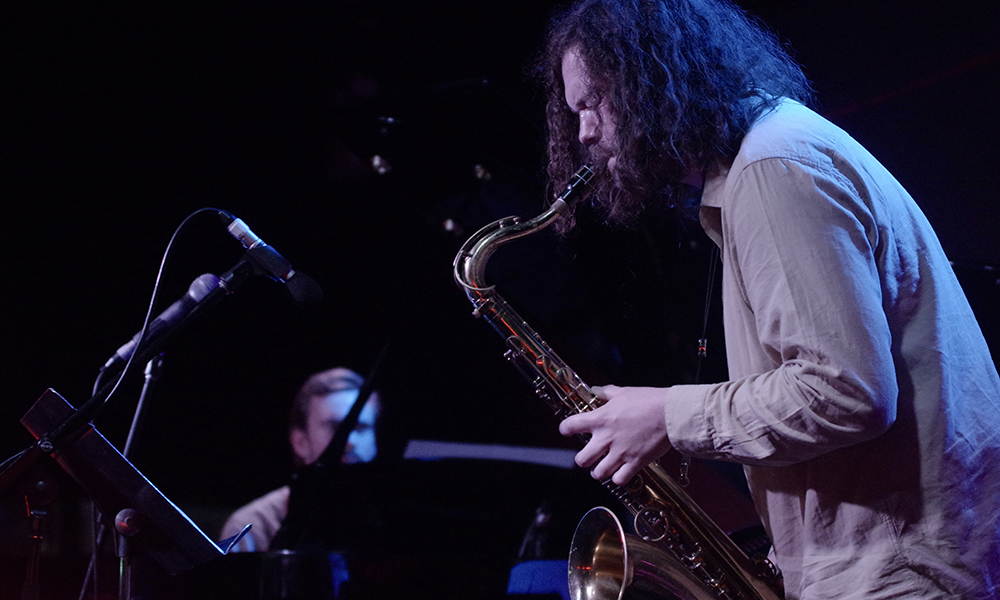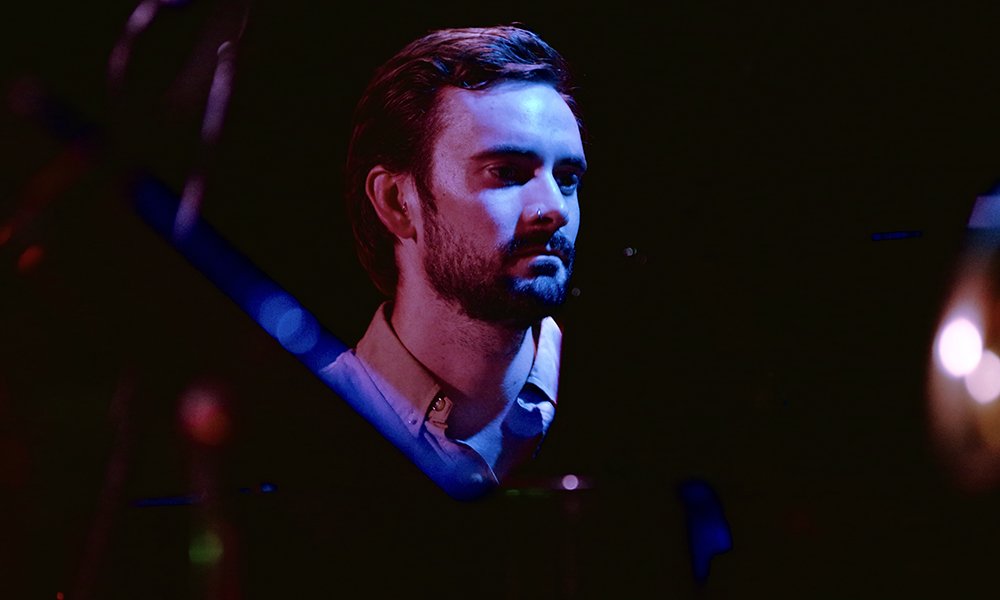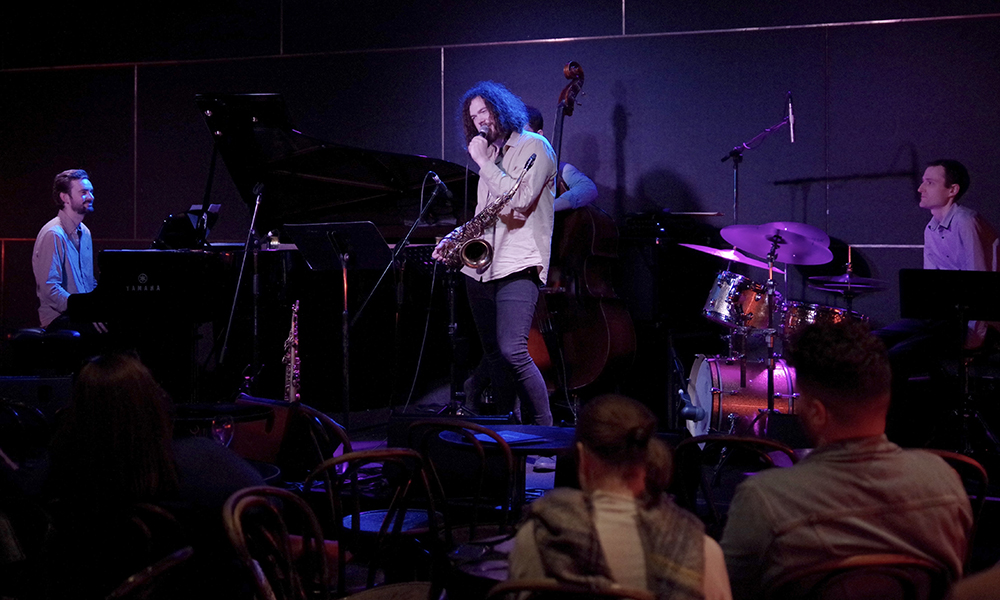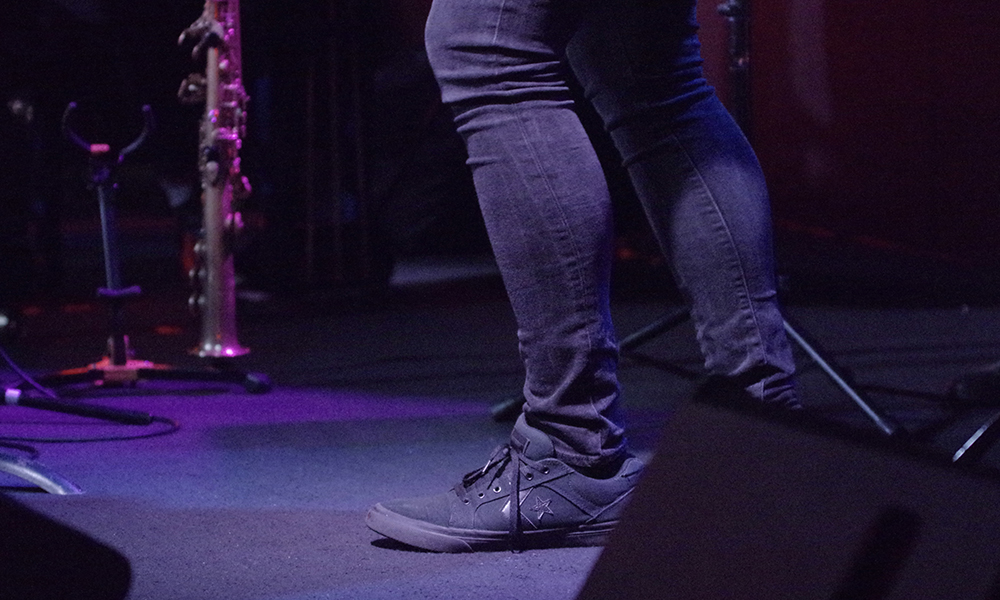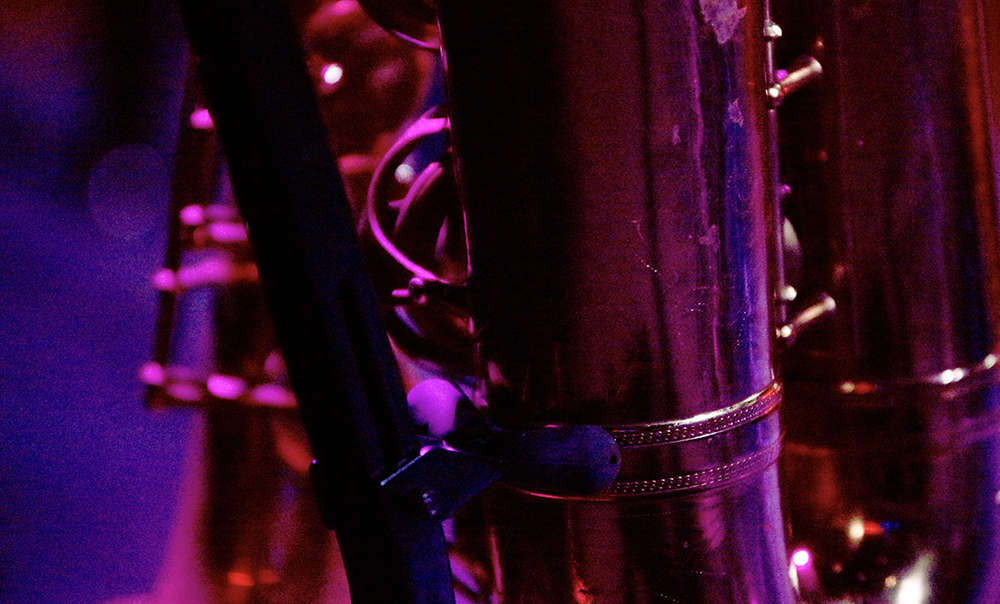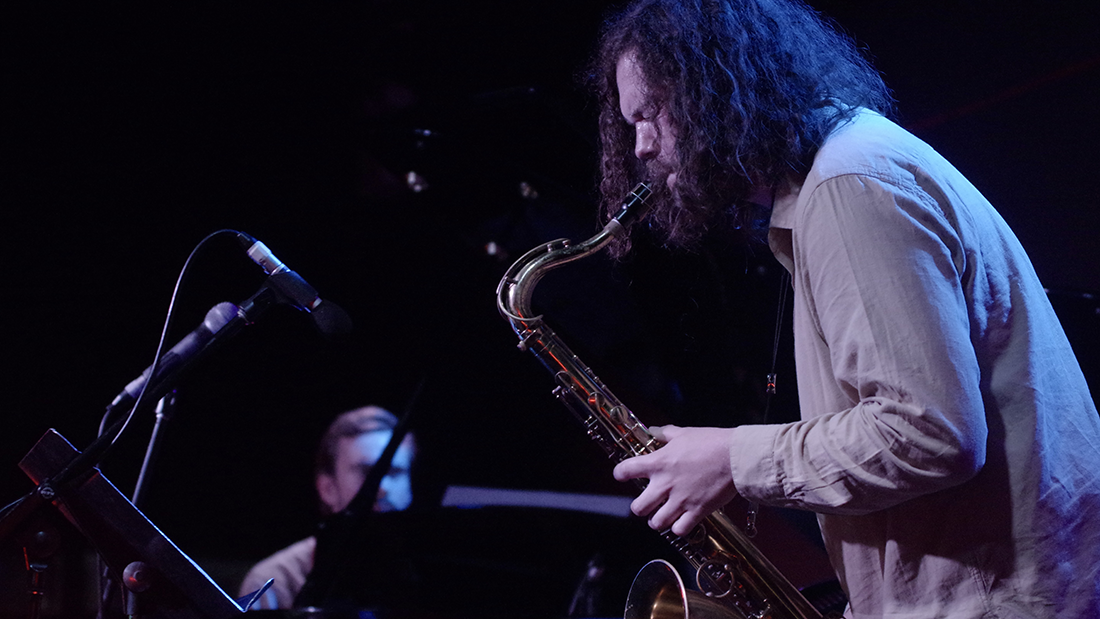
Review: Tom Thorp at The Ellington Jazz Club
Tom Thorp at The Ellington Jazz Club
Friday, August 25, 2023
The late show at the Ellington last Friday was the second of the night’s sax spectaculars. While the first had a distinctly American bent, the midnight round crossed the Atlantic to take in contemporary Europe.
English saxophonist and composer Tom Thorp hails from Manchester. He graduated from the Royal Northern College of Music (the GRNCM) in 2011, where he studied compositional techniques in both jazz and classical music under Tim Garland, Steve Berry and Rob Buckland. Perth was the last stop on his first Australian tour that saw him also play clubs in Sydney, Newcastle and Cairns. For his two Perth shows, he performed with local musicians Austin Salisbury (piano), Alistair Peel (double bass) and Bronton Ainsworth (drums).
Looking like a young John Martyn and sounding like Morrissey, Thorp took to the stage and, with the briefest nod to the audience, initiated his new ensemble with Three Year Itch. Composed as England went into lockdown, it debuted on the other end when he was at last able to return to the stage and touring. On his straight soprano sax, Thorp wove some colourful lyrical threads that duelled and harmonised richly with Salisbury’s delicate piano lines. Subtle and powerful, it provided a soft and melodic start to the show.
This was followed by the lush and lovely Hanging Gardens from the 2016 album See Speak. Featuring a mellow bass solo by Alistair Peel, this tune soothed us into the vein of the great ECM record label, a style dear to Thorp’s heart.
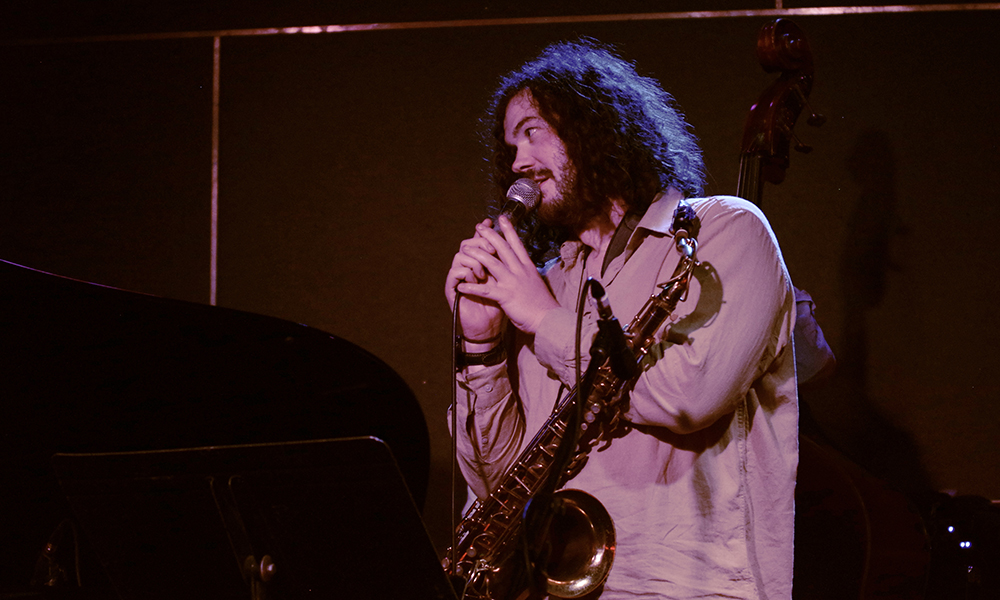
Tom Thorp
Thorp works internationally as a performer and composer of jazz, classical and commercial music. He has released four albums of original material over the last dozen years and performed at many prestigious venues—The Royal Albert Hall, Glastonbury Festival, and the world-famous 100 Club among them. He can now add Australia to his international touring destinations having already performed extensively throughout Europe as well as in China and Taiwan.
The third tune of the night was Thorp’s arrangement of the classic folk song Scarborough Fair. Written on the flight across the Nullarbor, his aim was to save this great song from Simon and Garfunkel’s near-ubiquitous rendition. In its first airing, he succeeded in spades. His version pulled the song apart to reconstruct it anew. Each statement of the familiar melody was broken by free form solos. Both he and Salisbury shone with their haunting improvisations, his edging on Coltrane, Salisbury’s nudging toward Keith Jarrett, perhaps ECM’s most famous artist.
They finished the first set with Monkey Puzzle from the 2017 album of the same name. Composed for a sax quartet, this was more angular and modal, a puzzle to be pondered.
As a composer, Thorp likes to blend classical and jazz styles. He lists as his influences, not only Garland, but also the great Scandinavian sax players, Jan Garbarek, Tord Gustavsen and Mathias Eick, his fellow Englishman Chris Potter and the American Ben Wendel.

Tom Thorp
Fascinated by texture, although he composes alone, as a jazz musician he knows to leave space for his fellow players to put their stamp. This was in evidence at the Ellington in the spaces he graciously allowed the troika of thin young men in pale blue shirts who accompanied him. It was usually their solos that garnered immediate applause while his tended to be treated as transitional passages.
Although his accompanists earnt this response, it was a shame that Thorp’s understated solos were not so readily acknowledged. Subtle in their complexity, his default mode is to provide the melodic glue essential to holding a tune tight. As his melodic deconstructions on The Minotaur and Scarborough Fair showed, he is also a dextrous improviser but overall his focus is on the composition as a unified whole.
The second set concentrated on his new album There Be Monsters, due for release in November this year. Composed during lockdown, this album explores mythical and legendary creatures and takes its inspiration from the mystical landscape of the Welsh mountains.
The set opened with The Last Dragon, Thorp’s imagining of the final flight of this mythical beast around its Welsh homeland. Meditative, all four players descended deep into themselves to explore the haunting textures of this very European tune. Peel’s bowed bass counterpointed exquisitely Ainsworth’s malleted cymbals. Salisbury let his inner-Jarrett rip while Thorp’s soulful tenor pulled this introspective and beautiful tune together. It was clearly the highlight of the night.
They followed this with a tender love tune, If We Were There Now. Introspective and melancholy, this is the score for the scene where a misunderstanding sees the lovers part, pining for each other.
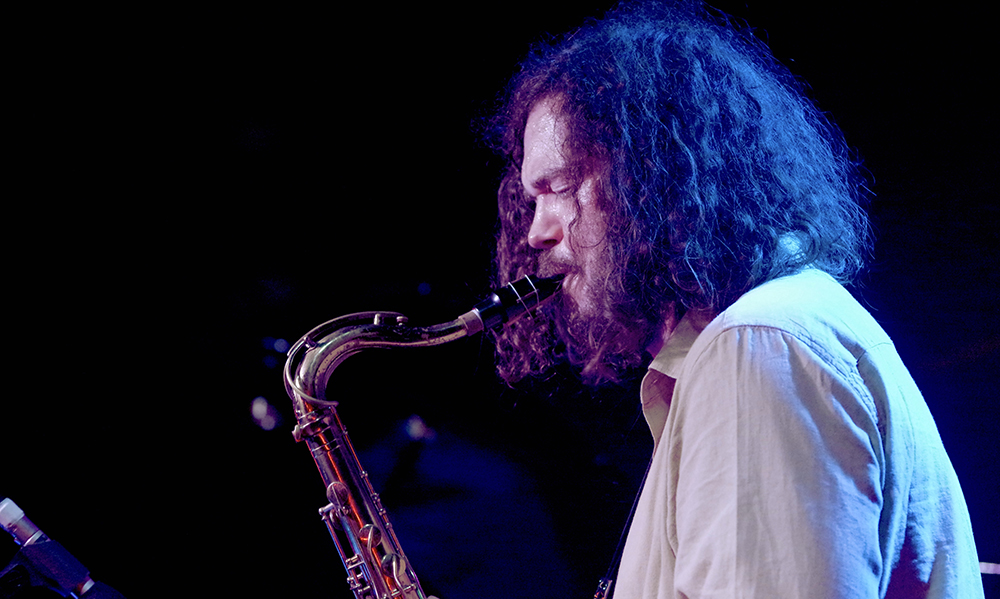
Tom Thorp
Thorp chose his band well. The players complimented his ECM style perfectly as was best illustrated in the next tune, a return to the mythical monsters, The Minotaur. Together the ensemble created the scene of the man with a bull’s head and his nemesis, Theseus, working their way through the Cretan labyrinth. Peel, hunched over his bass, created the maze through which Thorp (as minotaur) and Salisbury (the lost Theseus) moved. Ainsworth’s crashing solo finale depicted their final confrontation. It was a clever musical imagining of this ancient Greek tale, very Coltrane-like in its intensity.
Although by then exhausted—it was nudging 1am—Thorp ended the night with a brisk run through the Cole Porter classic Night and Day. Once again the quartet managed to deconstruct this beautiful standard, find the deep jazz underlying it and brush it with a distinctly European palette.
Special mention has to be made of Alistair Peel’s stamina. He played in both of Friday’s shows, a thorough workout for this talented young bass man.
But the show belonged to Tom Thorp and he proved himself to be both a fine and dexterous player and an imaginative and original composer.
While in town, Thorp also ran masterclasses at the UWA School of Music and WAAPA. Hopefully, having now had a taste of Perth he will return for more shows and other masterclasses.
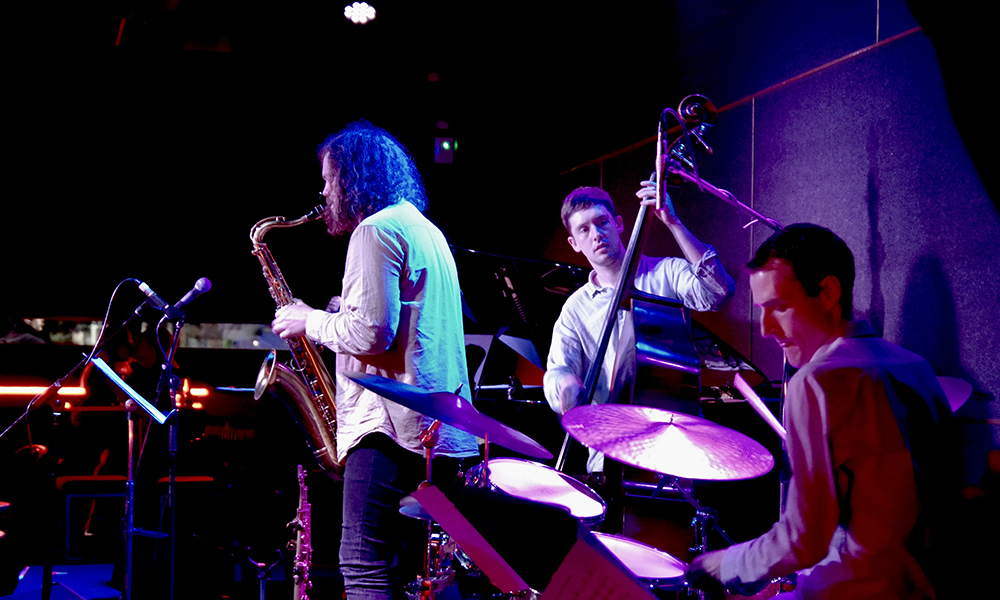
Tom Thorp
It’s unfortunate that Perth doesn’t have a more dedicated late-night jazz following. We all go to bed too early. Thorp’s fine performance and complex music deserved a much fuller room than he had at The Ellington. Granted, those in attendance were appreciative and enthusiastic and, as Thorp himself later said, that is all that matters. Even so, hopefully his second Perth gig at Lyric’s Underground Saturday drew a much bigger crowd. His music and performance are sparkling jewels that warrant serious attention.
Thorp’s albums are released on the Norwegian label A.M.P. Records. His other (non A.M.P.) material is released on Bandcamp: MercuryManchester.Bandcamp.com and Polygonsaxquartet.Bandcamp.com. Check them out, you won’t be disappointed.
IAN LILBURNE
Photos by Alan Holbrook

